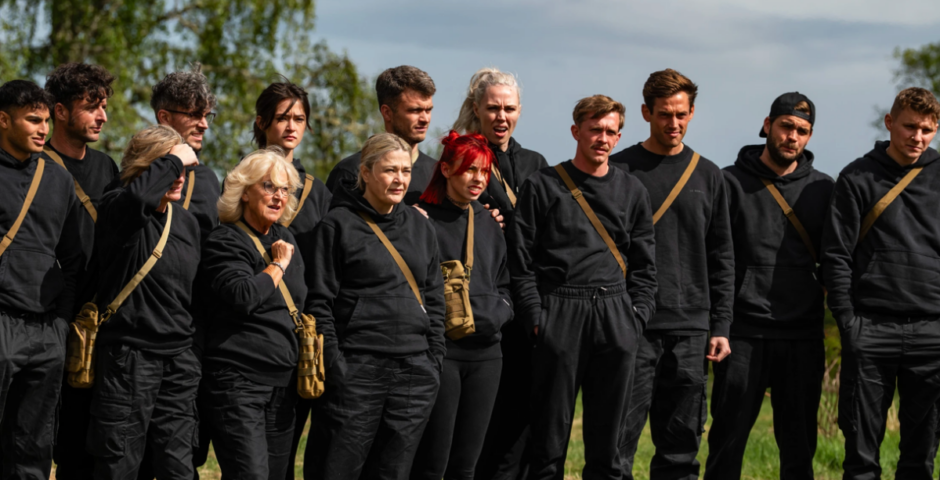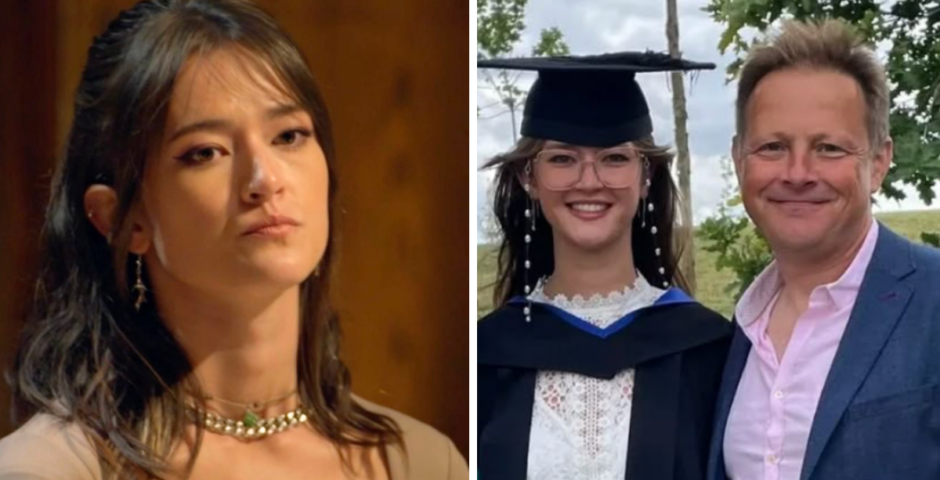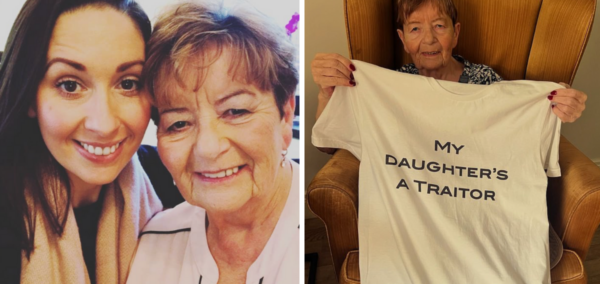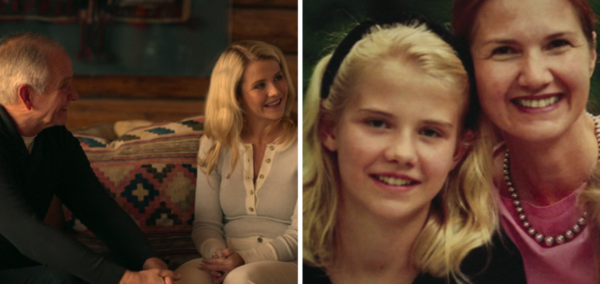
From UCL to the Scottish highlands: Alex Gray on her journey on The Traitors
A true psychology alumna, she thought the show was ‘extremely interesting’ ‘from a psychological perspective’
TW: mental health and eating disorders
Picture this: It’s a Sunday night. You promised yourself that this weekend, you’ll finally achieve your full grinding potential and be on top of your uni work. You lied. You’re again being swallowed by your musty student house couch while aimlessly scrolling for your next reality TV obsession, hoping it will fill a void in your heart.
So you end up casually watching RuPaul’s Drag Race with your flatmate. But when the episode finished, you’re suddenly transported to the Scottish Highlands via BBC iPlayer’s recommendation and irreversibly down the rabbit hole of a certain show called The Traitors. Some may call this a simple coincidence. I call it fate.
For those not lucky enough to know, The Traitors is a British reality television series based on a previous Dutch production. The show features a small group of contestants marked as “traitors” working as a team to eliminate the other contestants while securing their identity to win the ultimate cash prize of £120,000. The rest of the contestants are marked as “faithfuls,” and they must identify the traitors and successfully vote them out to win.
One of the faithfuls was Alex Gray, a 26-year-old presenter and actress from London and a UCL Psychology alumna. The London Tab spoke to her about what it was like to be on the show.
‘It’s a game of survival, a game of trust, and ultimately a game of individuals’
When Alex’s boyfriend Tom introduced the idea of The Traitors to her, it was a no-brainer.
Alex told The London Tab: “I went ahead with the application process thinking in vain that nothing would come of it. And the next thing I know, I’m in a castle in the Highlands with Claudia Winkleman burying me alive, hah!”
Most Read
But it was not all fun and games, as constantly having to be cautious of everyone’s identity and intentions was still soul-draining for Alex.
“It’s a game of survival, a game of trust, and ultimately a game of individuals. You don’t know who you can and can’t believe. No matter how close you got with those people during filming, there was always a big part of you that was suspicious and on edge, listening out and watching for anything they could have said or done to suggest they were lying.
“It was honestly horrible and extremely tiring. When it’s two-three weeks of intense paranoia, it really ends up destroying you. I’d never had a headache like it in my life!
“Luckily, most of us are all friends now. We meet up regularly, frequently chat over the phone, etc. But I think by consequence of a casting process for a show to pit us against each other, realistically, we’re not all going to be best friends on the other side.”
And, making her UCL psychology lecturers proud, she said: “From a psychological perspective, it’s extremely interesting. From the dynamics of the game to the side effects that the induced paranoia, anxiety, and eventual sleep deprivation cause, and how that then cycles back into the game.”
‘I think the universities need to do more to ensure our wellbeing’
While we most likely can’t relate to what it was like to be on a hit TV show, I’m sure many can relate to Alex’s experiences at UCL.
Alex described her time at the uni as both terrifying and spectacular.
On the downsides of her experience, Alex said: “I don’t remember 90 per cent of what was taught. There was honestly too much material that it all got committed to short-term rather than long-term memory.
“I wanted to get a first on the course, and ultimately I would say that was a mistake because to do that, you had to remember about the equivalent of 20 A Levels worth of material in a single year. We also had a stupid number of exams, all of which were more than three hours. My hand literally started BLEEDING on my final exam papers in both second and third year. I was so stressed as there was a lot of pressure on us, and even people with four A*s in A Levels dropped out because it was just too much.”
But Alex still described her “least favourite thing about UCL” as “the care for mental health.”
She said: “I was very obviously struggling with an eating disorder, being the skinniest I’ve ever been in second year that even my size four shorts were sliding down my hips. But not one of the tutors or members of staff pulled me to the side and asked if I was.
“I ended up avoiding going to lectures and just watched them from home as they were recorded. There were a lot of people with eating disorders on campus, and I was suffering very badly at the time too.
“Tears of pure joy because I no longer had to go through that hell anymore. And I honestly don’t mind if anyone from the university reads this because, unfortunately, it’s the truth.
“I would say collectively, the student happiness during my time there was very low. Things may have changed now as I graduated almost six years ago (OMG!!!). But it honestly has left a marked impact on my brain, and the fact I still have nightmares about it is evidence enough of how much it affected me.
“It’s something that needs to be taken seriously, as my mental health was affected a lot during my time.”
Aside from mental health concerns, Alex also noted the big issue affecting all of us: the ultimate “is it worth the money?”
She said: “Lecturers who couldn’t care less about us, repeating the same PowerPoint slides they’ve used for ten years in a row, whilst promoting their overpriced textbooks that we *needed* to buy to pass the course. It was a disgrace.
“Also, the London accommodation was just truly awful and extortionate. I lived in a literal crackden in my final year. Hah, you think I’m kidding. But there were drug dealers on the stairwell, empty drug baggies scattered all over, and zombies crawling about on our doorsteps.
“Going to uni in London as a student is tough, and I think the universities need to do more to ensure our wellbeing.”
But Alex still found enjoyable things about her uni experience. One of her “two favourite things by far” is the “incredible friends” she met at UCL, who she said “will be with me till the day I die, whether they want to be or not.”
Another thing she enjoyed was her “work in the nightlife and events industry,” which allowed her to have “a crazy life outside of the Uni bubble.” But it’s not exactly what you might expect.
She said: “Honestly, I think I can count on one hand the number of times I got drunk at uni. I was the worst student ever in the sense that I actually STOPPED drinking when I joined.
“I started working in nightlife when I was 18, and I always remember someone saying to me, “oh, it’s a slippery slope. You start working in this industry, get caught up in drugs and drinking, and mess up all your chances of getting a degree.” That stuck in my head so strongly and made me more dedicated than ever to do well.
“I used to go out to all the very non-studenty places because of the network I’d built from work. I’d be at DSTRKT (RIP), Libertine, Cirque le Soir, the Box, Tape, etc.
“I definitely was a snob back then as to where I would go out, but now I barely ever go out. In fact, I don’t even really enjoy those places anymore BECAUSE I think it’s snobby. How the tables have turned!”
‘I’m going to be the future female Louis Theroux!’
Alex says what we all think, and she does it successfully! When asked about her plans following The Traitors’ success, she said: “I’m going to keep pushing my presenting career, and hopefully end up producing/presenting documentaries.
“I suffer now from an autoimmune illness, which I care about so passionately because more and more people in our modern-day society are going through the same. I have a lot of ideas about what I want to cover, including eating disorders, plant medicine, and so on.
“So watch this space: I’m going to be the future female Louis Theroux!”
I personally think Alex will be better than Louis Theroux, and I can’t wait to see what she gets up to. If you are as intrigued by her work as I am, make sure to follow her across platforms on @AlexOGray, unless, of course, if funny, engaging, soul-grabbing content is not your thing.
Until then, catch me re-binging!
In response to Alex’s comments, a UCL spokesperson said: “The wellbeing of our students is of the greatest importance, and we continually strive to offer the best care for our community. We are saddened to hear whenever anyone in our community is struggling, and seek to do what we can to ensure every student is well supported and has a positive experience at UCL.
“We offer a wide range of services to provide support for mental health and any psychological issues.
“Our Student Support and Wellbeing Services provide same day and pre-booked appointments to help students address any personal and health (including social, physical and mental health) difficulties. Advisors listen and seek to understand how a student might be feeling and can also help them identify and access the appropriate therapeutic or medical support, including crisis services. They also provide practical support and help with support plans and any adjustments to their studies.
“Student Support and Wellbeing also has a dedicated team which offers in person and online counselling, cognitive behavioural therapy, psychodynamic therapy, psychiatric support and psycho-educational groups to help students with personal, emotional and psychological concerns. This service is complemented by a 365 day-a-year telephone and online counselling service to help students with a wide range of emotional and wellbeing concerns as and when they might arise.
“In addition to this we have two student focused mental health service collaborations with the NHS; the University Clinic service for anxiety and depression provides high quality, evidence-based psychological treatment and, as part of the same facility, we have the Changing Unwanted BEhaviour (CUBE) clinic, which provides free, confidential support to UCL students, who want help with issues including alcohol and drugs misuse, gaming and gambling. We also have regular meetings with NHS colleagues to ensure effective co-ordination of services between UCL and the NHS, including for students with severe mental health problems.
“All of our support services are free of charge and open to all UCL students of all levels of study. We encourage anyone struggling with their mental health and wellbeing to contact Student Support and Wellbeing Services and can either raise an enquiry via askUCL or if they prefer they can visit the walk-in Student Enquiries Centre who can also help and book appointments.”
Feature images from YouTube screenshots.
Related articles recommended by this author:
• ‘I wanted to normalise the process’: Robbie on sharing his coming out journey on MIC
• Only a true London student can get full marks on this university geography quiz
• Quiz: Pick your outfit and we’ll tell you which London uni you’re from



















